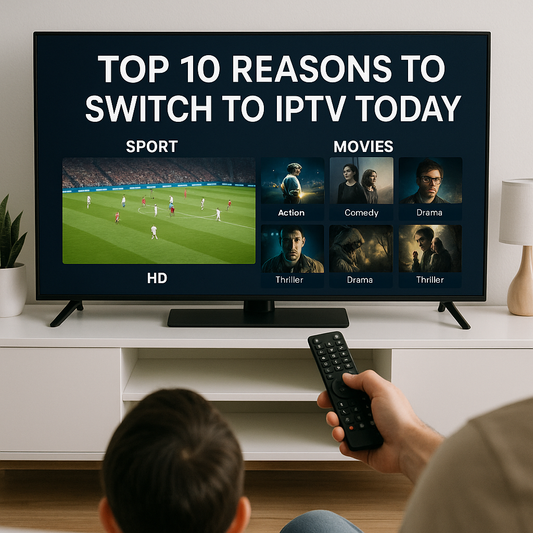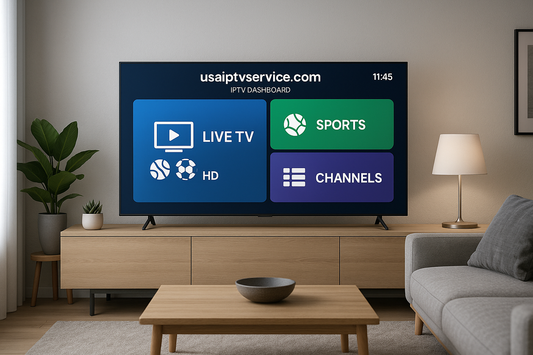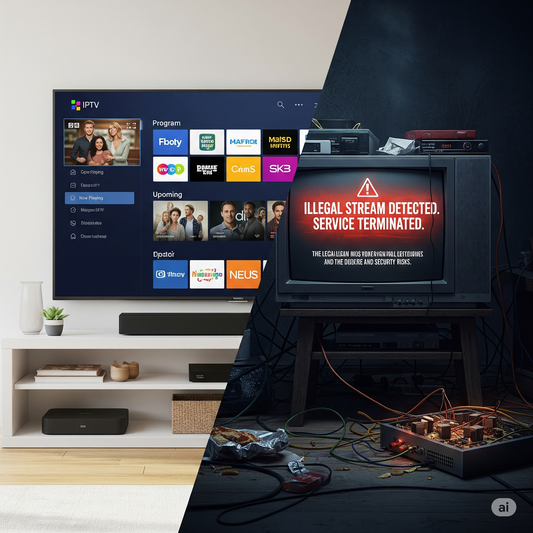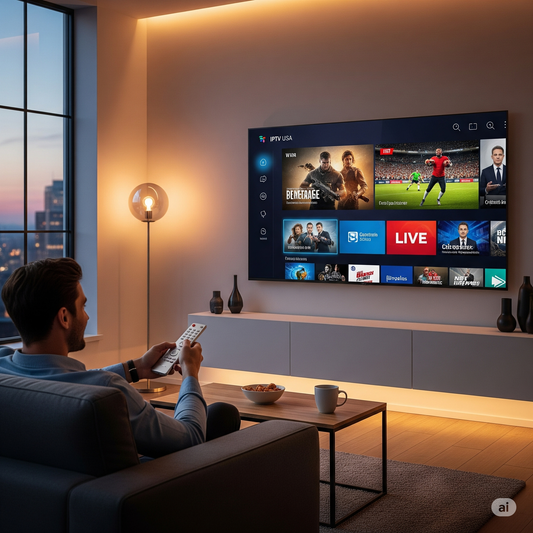The Difference Between IPTV and Traditional Cable TV
TV has come a long way. Gone are the days when bulky cable boxes and tangled cords ruled your living room. In 2025, viewers are switching to more modern, flexible, and affordable ways to watch their favorite shows — and that’s where IPTV steps in.
But what exactly is the difference between IPTV and traditional cable TV? Let’s compare the two head-to-head.
What Is Traditional Cable TV?
Traditional cable TV delivers television programming using coaxial cables or satellite dishes. It requires:
-
A physical setup (box + cables)
-
Scheduled programming
-
Long-term contracts
For decades, this was the standard way to watch live TV, news, sports, and entertainment.
While reliable, cable has its downsides:
-
Expensive monthly bills
-
Limited on-demand content
-
Lack of portability
What Is IPTV?
IPTV, or Internet Protocol Television, is a newer technology that delivers TV content over the internet instead of through physical cables.
With IPTV, you get:
-
Live TV
-
Video on demand
-
Playback & recording features (on some apps)
-
Streaming on multiple devices
One of the best parts? You can use IPTV on Smart TVs, Android boxes, Firesticks, laptops, or smartphones—anywhere there’s internet.
Side-by-Side Comparison: IPTV vs. Cable TV
| Feature | IPTV | Traditional Cable TV |
|---|---|---|
| Delivery Method | Internet | Coaxial cable / satellite |
| Device Compatibility | TVs, phones, tablets, laptops | Mostly TVs (via box) |
| Setup | App-based, no hardware | Requires box + technician |
| Portability | Global | Location-limited |
| Contracts | Usually none | Often required (1–2 years) |
| Price | Lower | Higher |
| Content Access | Live + VOD | Mostly live TV |
Why IPTV Is Winning in the USA
The shift is real — more and more Americans are ditching cable for IPTV. Here’s why IPTV USA is gaining traction:
🔹 1. No Contracts, Just Flexibility
Forget the fine print. With most IPTV subscriptions in the USA, you pay month-to-month with no strings attached.
🔹 2. More Channels, More Content
From sports to movies to international news, IPTV often offers more channels than cable, including hard-to-find international streams.
🔹 3. Stream Anywhere, Anytime
One of the biggest advantages of IPTV is portability. Whether you're on a beach vacation or living overseas, IPTV lets you take your favorite content with you — something cable can’t do.
Is IPTV the Right Choice for You?
If you:
-
Hate paying $100+ per month for cable
-
Travel often or live abroad
-
Want HD/4K streaming without the hardware hassle
-
Prefer flexibility over commitment
Then IPTV might be your perfect fit.
Services like usaiptvservice.com offer reliable IPTV subscriptions in the USA with 24/7 channels, on-demand content, and zero setup headaches.
Final Thoughts
While cable TV had its moment, the future belongs to IPTV — a solution that’s cheaper, faster, and more convenient for today’s on-the-go lifestyle.
If you're ready to level up your TV experience, it's time to consider IPTV USA as a smarter alternative to outdated cable.






